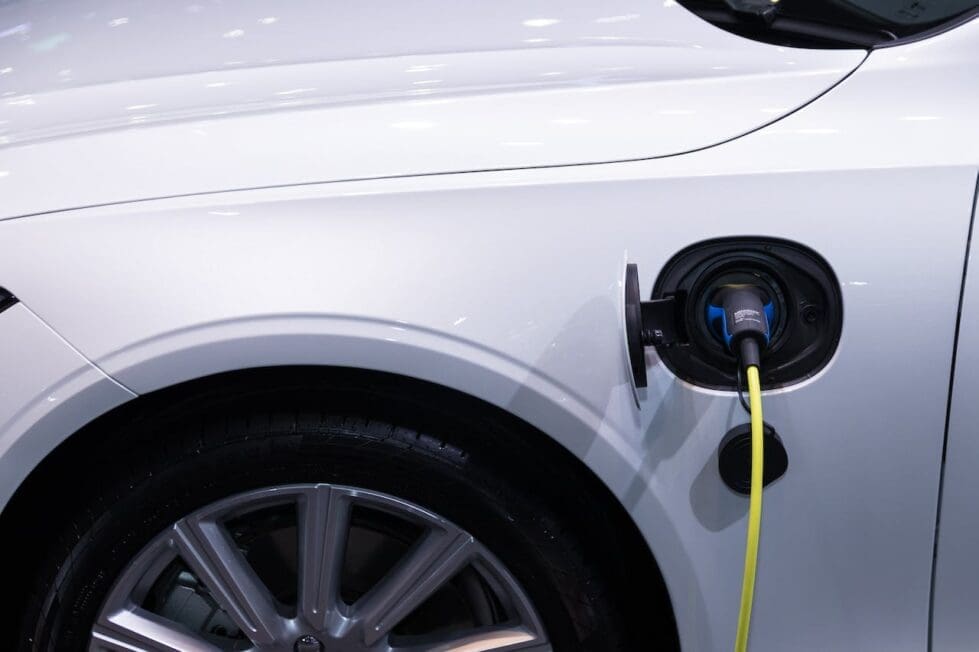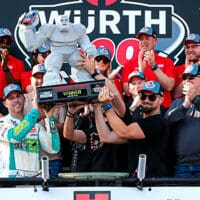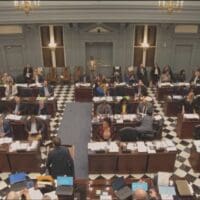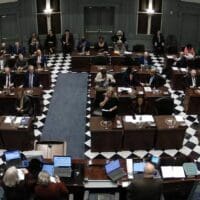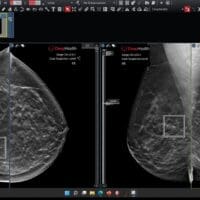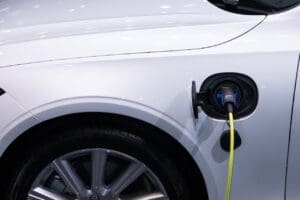

DNREC has issued its final regulations on electric and other zero-emission vehicle with a few concessions to objectors.
DNREC has finalized state regulations about electric and other zero emission vehicles it says will help Delaware achieve lower air pollution caused by light- and medium-duty cars,.
Instead of demanding that by 2035 all new car sales in Delaware must be electric, the program will end in 2032 when sales are expected to hit 82%.
That will address many of the issues opponents complained about, the Department of Natural Resources and Environmental Control said in a press release while patting itself on the back for “taking a significant step to improve air quality and address climate change.”
The regulations will not make those opposed happy.
“With over 93% of comments opposed to the Advanced Clean Car II regulations, we know where the public stands,” said Delaware Senate Minority Whip Brian Pettyjohn, R-Georgetown.
“Consumer demand just isn’t there, and that fact is evident by not only the public comments on the ACCII regulations, but also by recent announcements from major auto manufacturers stating they are cutting back on their production and sales goals of electric vehicles,” he said. “This regulation is bad for the availability of affordable, reliable and inexpensive vehicle ownership in Delaware, and it should be stopped.”
State Rep. Rich Collins, R-Millsboro, who has twice successfully taken legal action against DNREC actions, believes the agency is again on thin legal ice.
“The rules they finalized today are not the same rules they unveiled for public discussion earlier this year,” he said. “Under the state Administrative Procedures Act, they should be resubmitting this altered proposal for review, not finalizing it.”
Collins said today’s actions are a slap in the face of Delaware citizens who clearly told the agency they did not support this proposal.
“Thousands of Delawareans submitted comments, came to public meetings and responded to polls, and they overwhelmingly told DNREC they did not want them to pursue this,” he said. “This is an action of profound disrespect to all Delawareans. Essentially, DNREC is following their agenda at the expense of citizens’ rights and then having the gall to tell them they are doing it for their own good. DNREC is the embodiment of hubris.”
Regulations backlash
The subject drew a wide range of backlash with opposition to the higher costs of electric vehicles, the higher weight of those vehicles, he low milage many of the current models get — especially if you live in a rural area that requires you to drive more compared to urban residents — and the fact that research continues in other areas.
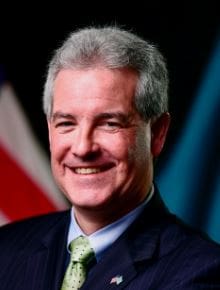

Shawn Garvin
Many also object to the way the regulations came about.
Instead of being legislated, they were required in an executive order from Gov. John Carney asking DNREC to model regulations on a California law.
The regulations require automakers to deliver an increasing amount of zero-emission vehicles — that’s politicized code for electric vehicles –for sale in Delaware.
Zero-emission options, including battery-electric, plug-in hybrid electric, and hydrogen fuel cell electric vehicles, will be more accessible across the state.
Under the finalized regulation, starting with model year 2027, 43% of new cars and trucks sent to Delaware for sale will be ZEVs. That percentage is expected to increase to 82% in 2032.
The regulations will expire in model year 2033.
The changes will be phased in over the period and the regulations do not prohibit the sale or use of internal combustion engine vehicles, the DNREC press release said.
Collins and his fellow Republicans pointed out that ZEVs will be predominately battery-electric vehicles. The rules dictate that hybrids can account for no more than 20% of total ZEV sales. Hydrogen fuel-cell vehicles are not widely available, have no supporting infrastructure, and are unlikely to be obtainable or practical anytime soon.
According to U.S. Department of Energy registration data for cars, trucks, and SUVs in Delaware for 2022, there were 5,390 electric vehicles, 2,800 plug-in hybrid electric vehicles, and no hydrogen vehicles.
In the same year, the DOE reports there were 66,200 E85 vehicles, 795,400 powered by gasoline, and 14,500 using diesel in the state.
The Republican statement issued Thursday pointed out that consumer demand for EVs has diminished sharply due to consistently high prices, the limitations and concerns associated with the technology, and higher auto loan interest rates.
It cited a CNBC article published Nov. that said selling an EV in the U.S. this past August took about twice as long as it did in January.
According to U.S. Department of Energy registration data for cars, trucks, and SUVs in Delaware for 2022, there were 5,390 electric vehicles, 2,800 plug-in hybrid electric vehicles, and 0 hydrogen vehicles. In the same year, the DOE reports there were 66,200 E85 vehicles, 795,400 powered by gasoline, and 14,500 using diesel in the state.
The regulations decision was announced by a DNREC Secretary’s Order and is set for publication in the Delaware Register of Regulations on Dec. 1, 2023.
It was informed by state law, the federal Clean Air Act, information included in the technical response memo and comments received from the public during the rule-making process.
“By adopting the revised regulation, DNREC aims to protect public health, reduce emissions, and align with Delaware’s climate goals – all while providing consumers with cleaner and more sustainable transportation options,” said DNREC Secretary Shawn M. Garvin in the press release. “This decision will result in cleaner air in Delaware and strengthen protections for communities overburdened by exposure to tailpipe pollution.”
Targeted sales
The Delaware ACC II program as originally proposed provided targets for yearly sales of ZEVs reaching 100% by 2035.
Extending the requirement only through 2032, rather than 2035, will mane that sales will reach 82% rather than 100%, but still help Delaware reduce emissions and support a thriving market for clean cars.
Pollution from transportation is a leading contributor to Delaware’s greenhouse gas emissions. Gas and diesel vehicles are also significant sources of nitrogen oxides, the press release said.
These pollutants adversely affect public health and interact with sunlight to form harmful ground-level ozone pollution. The regulations will reduce these forms of pollution and contribute to the improved health of underserved communities that are more likely to be near busy roadways.
Increasing the number of electric and other vehicles on Delaware roads, along with building out the state’s electric vehicle charging network, are key strategies outlined in Delaware’s Climate Action Plan.
Delaware House Republicans pointed out that the regs and public statements conflict.
They say Carney seemingly undercut this rationale in a June 2018 opinion column lamenting the lack of pollution controls on out-of-state power plants.
“90% of Delaware’s air pollution comes from other states,” he said then.
IN THE NEWS: The New Castle County Hope Center will release a report in January detailing its expenses, services
Through the Inflation Reduction Act, there are federal tax credits and rebates available for ZEV purchases, DNREC pointed out.
DNREC currently offers a rebate up to $2,500 to support the purchase of a new electric vehicle, which can be added to the federal tax credits. Studies show that most higher-income individuals take advantage of those offers.
Lower-cost models are increasingly available, the press release said. A regularly updated list provides car shoppers a quick reference to the vehicles eligible for the rebate.
Additionally, Delaware is actively working to expand its charging infrastructure to meet the increased demand for charging from more electric vehicles on the road, including stations located along major highways and in nearer proximity to rural and underserved areas.
DNREC will evaluate progress by using tracking tools to conduct annual reviews of the program.
The reviews will confirm the delivery of zero-emitting vehicles to Delaware and indicate that advancements in technology, supply chains, affordability and battery performance are occurring as anticipated, the press release said.


Betsy Price is a Wilmington freelance writer who has 40 years of experience.
Share this Post

